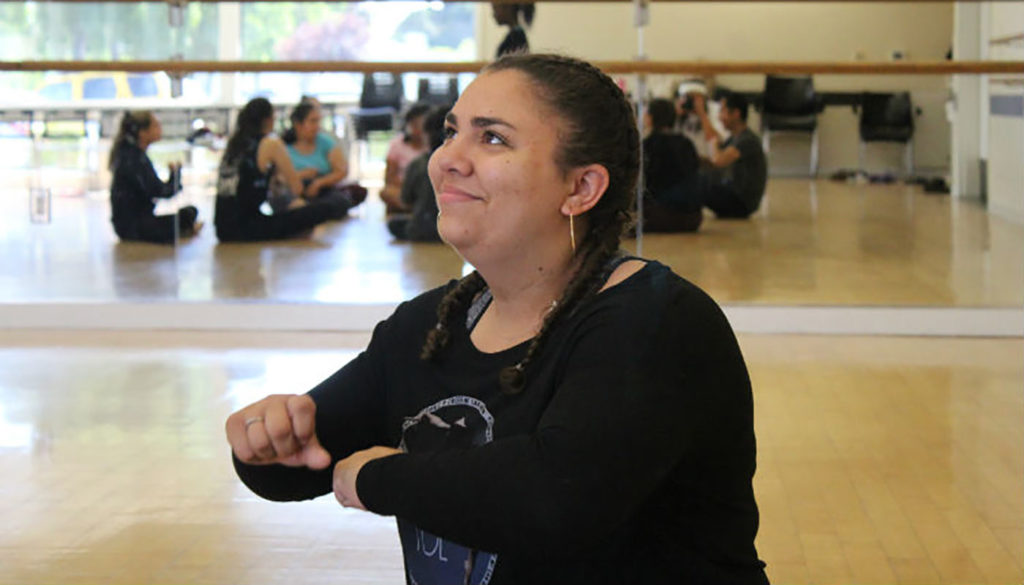Toes pointed, fingers curved, eyes twinkling, Victoria Sagers guides the group through the warm ups and choreography. It’s been a year and a half since she helped start E-Dance, an inclusive program where kids with and without special needs come together to dance.
It was a year of many firsts. Her first year of college, her first time moving out of the house, and her first time paying the bills. But she still made time to volunteer on Saturday mornings.
“I always have a great time with the kids. I always feel so happy when they achieve something new, or when I see the parents being super grateful that they have a safe place for their kids to go and have fun … it’s worth it.”
Providing safe spaces for people to be themselves and develop friendships is important to Sagers. She grew up learning to be inclusive at home and in her friendships.
When they were younger, her brother was on the autistic spectrum. Sagers learned inclusion from her love for him as well as from her participation in a full inclusion program called E-Soccer.
“E-Soccer really inspired me that my brother can be in a program with kids with typical needs and not be looked down upon. I know a lot of kids at school would be bullied because they have special needs, whereas with these programs like E-Soccer or E-Dance, now they can go and they’re actually friends. Not just like they tolerate each other … they want to hang out in and outside of the inclusive environment.”
Sagers loved the inclusive environment that E-Soccer provided, but her passion is dance. When she was a toddler, she began to put on dance shows for her parents and they decided to enroll her in dance classes. In high school, dance came to mean more to her than her favorite form of expression. She went through various intense health challenges during her junior and senior years. At first, she had to stop dancing.
“I remember thinking that I had to dance again. So once I got put back into dance my whole mood and attitude about being sick changed. Dance gave me an outlet to be free from being sick. And it helped me to learn how to be more bold.”
Sagers was grateful for what dance did for her and wanted to create an E-Dance program in high school, but she didn’t know how to start one. She was thrilled when, halfway through her freshman year of college, a few women she knew (Aimee Castillo and Karen Chiang) asked her if she would like to help them start an E-Dance program. Like Sagers, their children loved the inclusive side of E-Soccer, but wanted to dance. Together they found a location, recruited volunteers, and advertised to other families. They now come together every Saturday morning in Foster City to stretch, warm up, dance, and have fun. Recently, the kids learned a dance that they performed in one of College of San Mateo’s dance shows.
Sagers has been excited to see the kids, both with and without special needs, grow in their skills, confidence, and friendships. And the benefits of the program aren’t only one-way; the kids help her, too:
“Being in E-Dance and seeing how accepting the kids are of each other helps me to be like, ‘Oh, even though I have health problems or different learning challenges, I can be accepted too,’ … I don’t have to be limited because of those different challenges.”
E-Dance has become a powerfully inclusive environment for both its participants and its teachers. There is another E-Dance in Alameda, and Sagers looks forward to helping more programs start around the Bay Area in the future.




